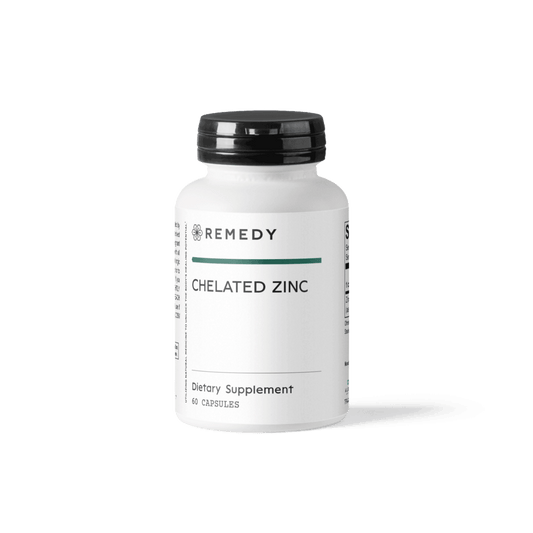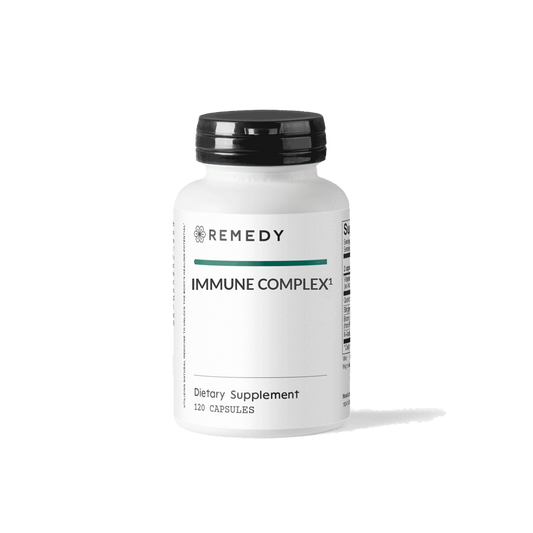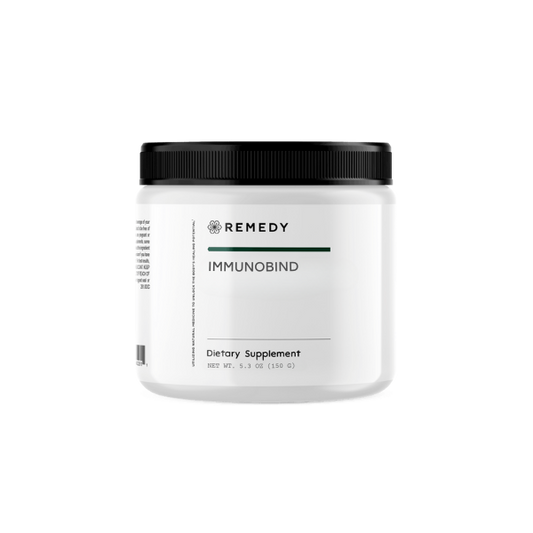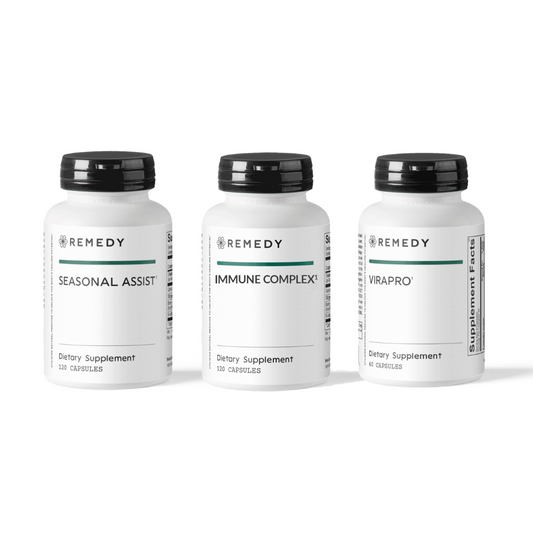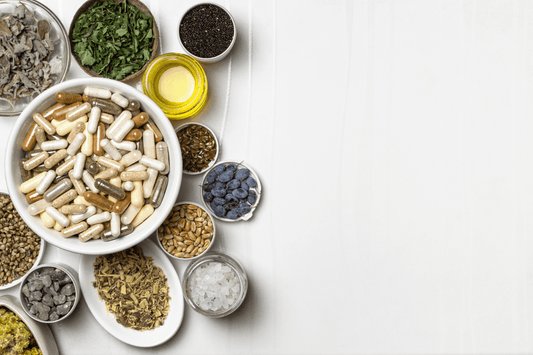Diets that consist of highly processed foods can cause nutrient deficiencies that negatively affect the immune system. Additionally, a poor diet can disrupt healthy intestinal microorganisms, resulting in chronic inflammation of the gut microbiome, and associated suppressed immunity.
Getting sick is not fun. Dealing with a runny nose and incessant coughing can make your week drag on. It’s tempting to turn to comfort food when you’re sick, but nourishing your body is as important as ever when your immune system is working on overdrive. You need nutrient dense healing food to boost your immune system instead of highly processed foods with low nutritional value. One great way to boost your immune system is through herbs and supplements.
Functional medicine focuses on the principle that food is medicine. Nutrition is critical for healing from the common cold and other infections that aggravate your immune system. In addition to a whole foods diet, herbs and supplements support your immune system.
Of course, your immune system is complex and influenced by many factors, not just diet. No single food or nutrient is enough to support your immune system. You need a balanced diet with a wide range of vitamins and minerals combined with other lifestyle factors. Plenty of sleep, stress management, and adequate exercise help to boost your immune system.
All of these factors combined prime the body to fight infection and disease. With that in mind, what herbs and supplements are the best immune system boosters?
What is the Immune System?
To start, the immune system is the part of your body that fights foreign invaders. The immune system identifies bacteria, viruses, and parasites and takes action to eliminate them. You have two types of immunity: innate and adaptive.
Innate Immunity
Your innate immune system is the first line of defense against infection. It goes to work during the first critical hours and days of exposure to a new pathogen. Your body has protective barriers through which the innate immune system works. Some of those defenses are skin, mucus that traps pathogens, stomach acid, enzymes in your sweat and tears, and immune system cells that attack all foreign cells.
Adaptive immunity
On the other hand, your adaptive immune system is acquired immunity. It learns to recognize a pathogen over time. Thus, it could take up to a few days to kick into action. The adaptive immune system is regulated by cells and organs in your body. These create antibodies and lead to the multiplication of immune cells specific to that harmful pathogen to destroy it.
Conditions that Trigger an Immune Response
Furthermore, what triggers an immune response, and can you do anything about it with immune system boosters?
Antigens, or pathogens, are substances that your body labels as foreign and trigger immune cell activity. One type of antigen can be allergens and includes things like grass pollen, dust, food, or pet hair. Your sensitivity to antigens varies from person to person.
Autoimmune diseases like thyroid disorders, rheumatoid arthritis, lupus, and others are other triggers of your immune system. These diseases often cause hypersensitivity in which your immune cells attack and destroy healthy cells.
Similarly, immunodeficiency disorders can depress or disable your immune system entirely. AIDS and some cancers reduce the body’s defenses so much that you become highly susceptible to illness from invading antigens.
Inflammation is one important aspect of your immune response. When pathogens attack healthy cells and tissue, a type of immune cell called mast cells counterattack and release proteins called histamines, which cause inflammation. However, prolonged inflammation can lead to tissue damage and a whole host of other problems.
You may be wondering where do immune system boosters play a role? Look at the factors that impact the immune system to find the answer.
What Factors Impact the Immune System
Poor diet is possibly one of the biggest causes of a poorly functioning immune system. Malnutrition or a diet lacking in one or more nutrients impairs the production of immune cells and antibodies. Research shows that immune dysfunction is both a cause and consequence of malnutrition.
As factors that impact the immune system go, nutrition is a critical determinant of immune responses and malnutrition is the most common cause of immunodeficiency worldwide. In fact, deficiency of single nutrientsalso results in altered immune responses. This is observed even when the deficiency state is relatively mild.
This is where immune system boosters like herbs and supplements can make all the difference.
Other factors that impact the immune system include:
- Age
- Environmental toxins
- Excess weight or obesity
- Chronic disease
- Chronic stress
- Lack of sleep
Do Herbs and Supplements Boost the Immune System?
Each stage of your immune system relies on the presence of micronutrients. Nutrients that have been identified as critical for the growth and function of immune cells include vitamin C, vitamin D, zinc, selenium, iron, and protein like the amino acid glutamine. Diets that consist of highly processed foods can cause nutrient deficiencies that negatively affect the immune system. Additionally, a poor diet can disrupt healthy intestinal microorganisms, resulting in chronic inflammation of the gut microbiome, and associated suppressed immunity.
With this in mind, herbs and supplements are great immune system boosters. They can support your gut microbiome and limit any nutrient deficiencies you may have due to dietary choices.
Traditionally, herbs have been used to support the immune system by promoting a healthy response to stress, supporting healthy inflammatory responses, and promoting microbial balance in the GI tract.
Here are some of the best herbs and supplements for immune system support.
- Echinacea - The phytonutrients found within echinacea are believed to support the immune system. Phytonutrients occur naturally in plants to help protect them, but they can also have health-supporting properties for humans. In supplement form, echinacea is available in a liquid form and in whole-herb capsules.
- Elderberry - Elderberries are nutritious and help address cold and flu symptoms, support heart health and fight inflammation. They are low in calories but packed with vitamin C, dietary fiber, and antioxidants in the form of phenolic acids, flavonols, and anthocyanins.
- Olive Leaf - This herb is a good source of key vitamins and antioxidants that boost the immune system. It is packed with nutrients called polyphenols. These forms of antioxidants have been found to help strengthen bones, build the immune system, increase cardiovascular function, and boost brain health.
- Quercetin - this polyphenol is found in foods like apples, berries, and brassica vegetables and has anti-inflammatory and immunomodulating properties making it a great addition to your immune support regimen. One way they do this is by acting as a mast cell stabilizer.
- Vitamin D - Low vitamin D levels have been linked to increased rates of autoimmune disease and higher susceptibility to infection. Vitamin D is a crucial nutrient for immune function because it serves as a modulator rather than a booster - meaning it can increase or decrease the function of the immune system to meet the body’s demands.
- Vitamin C - Vitamin C tops every immune system support protocol due to its robust involvement in multiple phases of the immune system. Vitamin C has potent antioxidant properties, protecting the body from damaging free radicals and also serves as a key nutrient for several immune system processes. In addition, vitamin C enhances the body’s mechanism for clearing dead and damaged pathogens once the immune system has killed them off, preventing excess inflammation and damage to the body.
- Selenium - Dietary selenium (Se) is an essential micronutrient that affects various aspects of human health, including optimal immune responses. Se deficiency has long been recognized to negatively impact immune cells during activation, differentiation, and proliferation. This is related to increased oxidative stress and impaired immune function.
- Zinc - Zinc is known to play a central role in the immune system, and zinc-deficient persons experience increased susceptibility to a variety of pathogens. zinc affects multiple aspects of the immune system, from the barrier of the skin to gene regulation within lymphocytes.
Make sure to check out my most recommended immune support supplement blends below for some powerful combinations!
Schedule a Consult
Immune system boosters like herbs and supplements are one important way to optimize your health. However, they are no substitute for an overall healthy diet and lifestyle. If you want to learn more about how you can take control of your health, schedule a 15-minute consultation with me!


